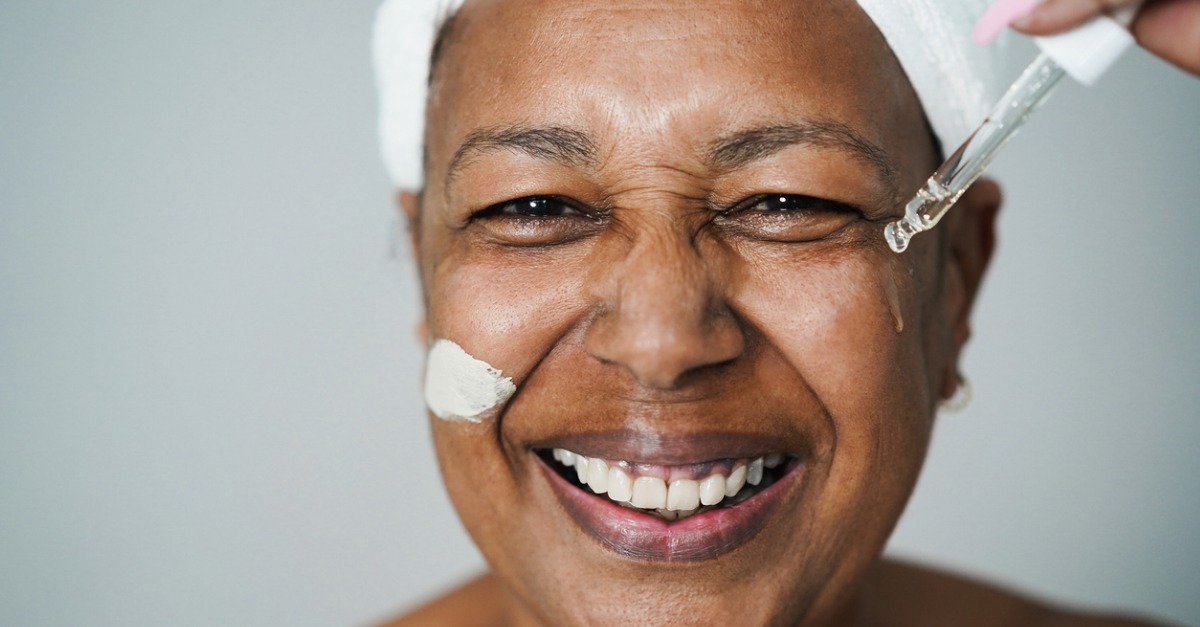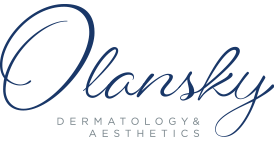It’s normal to experience bodily changes as we age, and our skin is no exception. While we know to expect certain skin differences like fine lines and skin tags, others may come as a surprise. Women in particular experience hormonal fluctuations that affect how their skin changes with age.
Seeing a noticeable skin change during menopause? You’re not alone. Here are some ways your skin may change as you age, as well as ways to address them.
How Women’s Skin Changes with Age (And What to Do About It)
Sun Damage
By middle age, you’ll likely begin to see some sun damage, like age spots. These darker patches of skin may be more pronounced if you’re fairer, especially if you were a sun worshipper (before you knew the importance of daily SPF!).
To slow or prevent future sun spots, wear sunblock of at least SPF 30 each day. And if you have existing spots you’d like gone, check in with our skincare experts first. In some cases, skin cancer can present as patches of discoloration. (Continue seeing us for annual skin cancer screenings regardless, since your risk increases with age.)
If we confirm your spot is indeed just hyperpigmentation, there are several ways to diminish its appearance. We have a range of professional sun spot treatments, including laser therapy, prescription creams, and chemical peels.
Dryness & Signs of Aging
Your body produces fewer natural oils as you age. Combined with hormone changes and decreased cell turnover, this leads to drier, rougher skin. Because dry skin appears dull, it amplifies signs of aging, while well-hydrated skin casts a glowing, youthful look.
To keep your skin supple, add a high-quality moisturizer to your toolkit. Look for formulas with hydration powerhouses like hyaluronic acid and glycolic acid, mineral oil, and glycerin. You can also incorporate vitamin A into your skincare routine: derivatives like retinoid slow the breakdown of collagen, a protein that maintains your skin’s elasticity.
If you have age-related cosmetic concerns besides dryness, cosmetic treatments like laser therapy, radiofrequency microneedling, facial peels, and Botox® are worth considering. These in-office treatments can reduce wrinkles and fine lines without any invasive surgery or downtime.
Hot Flashes & Skin Care
Perhaps the most dreaded skin change during menopause, flushing is a normal response to your body’s hormonal fluctuations. As your estrogen levels dip, you may become more sensitive to temperature changes, leading to those notorious hot flashes.
Triggers like caffeine, spicy food, and alcohol can cause hot flashes or make them worse, so cut back if you’re seeing a surge in the symptom. If they’re interfering with your sleep or daily life, you may want to talk to your women’s health specialist about medicated options.
Rashes & Irritation
Around your middle ages, your skin’s pH levels also change. You may notice an increase in sensitivity, and find that the products you once used are suddenly causing rashes. Try switching to fragrance-free formulas if irritation occurs. If you have new or worsening symptoms of eczema or rosacea, allow our experts to recommend a personalized skin care treatment.
Adult Acne
Just when you thought the days of blackheads and breakouts were behind you, life surprises you with adult acne. Before and during menopause, hormonal changes can cause acne similar to what teenagers experience. However, it calls for a different approach.
Start with a cleanser containing salicylic acid, but stop if you notice excessive dryness. Not only can this worsen acne, but it can damage your skin’s natural moisture barrier. Our specialists can recommend an even more personalized treatment to meet your skin-clearing goals.
Are You Experiencing New Skin Changes? Schedule an Appointment with Olansky Dermatology & Aesthetics
Whether you’re experiencing adult acne, signs of aging, or any other skin concerns, we specialize in both general dermatology and cosmetic services, offering comprehensive skincare all in one place. Request an appointment online or by calling (404) 355-5484.


